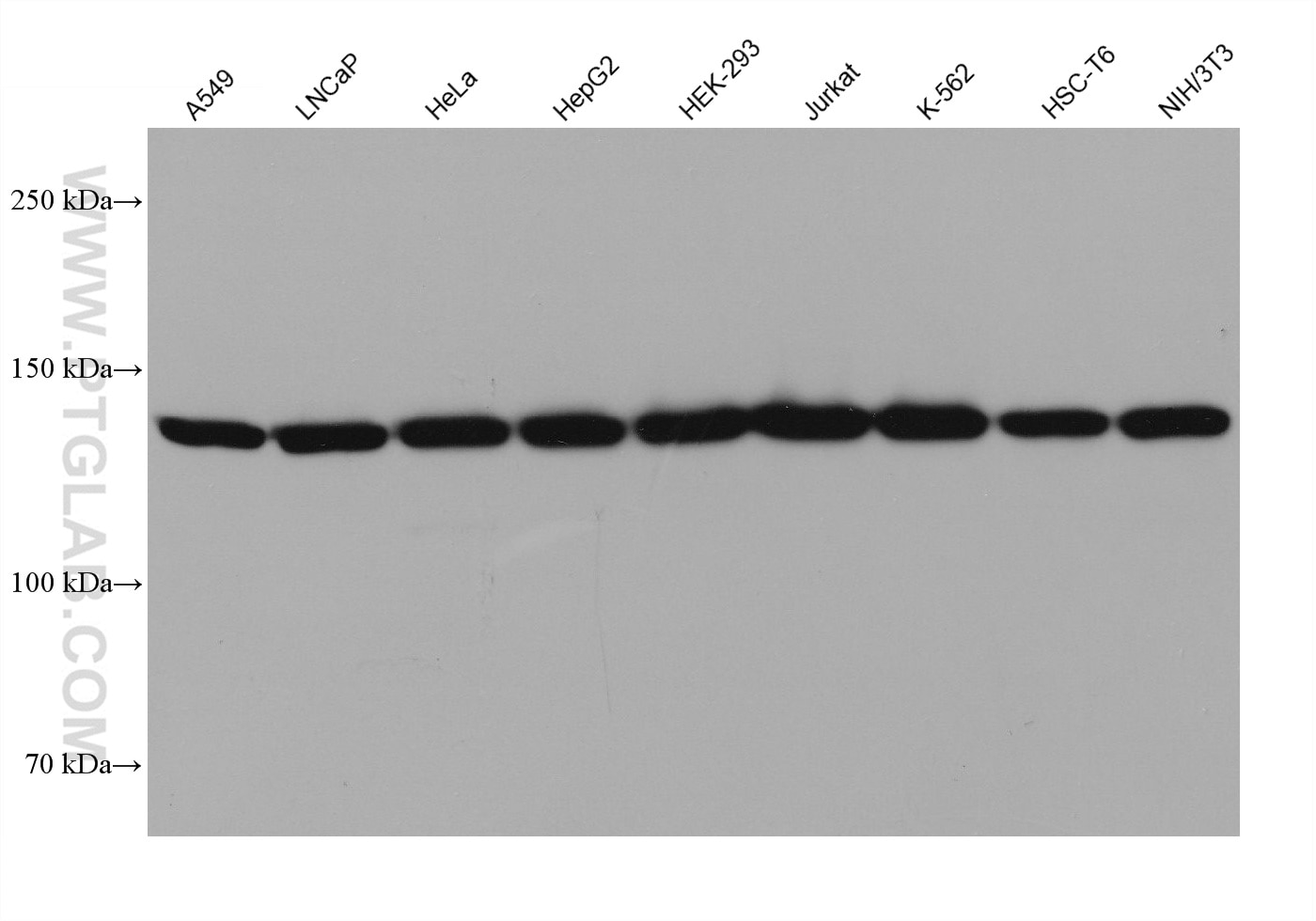Validation Data Gallery
Tested Applications
| Positive WB detected in | A549 cells, LNCaP cells, HeLa cells. HepG2 cells, HEK-293 cells, Jurkat cells, K-562 cells, HSC-T6 cells, NIH/3T3 cells |
Recommended dilution
| Application | Dilution |
|---|---|
| Western Blot (WB) | WB : 1:5000-1:50000 |
| It is recommended that this reagent should be titrated in each testing system to obtain optimal results. | |
| Sample-dependent, Check data in validation data gallery. | |
Published Applications
| IF | See 1 publications below |
Product Information
68152-1-Ig targets MYO1E in WB, IF, ELISA applications and shows reactivity with human, mouse, rat samples.
| Tested Reactivity | human, mouse, rat |
| Cited Reactivity | mouse |
| Host / Isotype | Mouse / IgG1 |
| Class | Monoclonal |
| Type | Antibody |
| Immunogen |
CatNo: Ag12244 Product name: Recombinant human MYO1E protein Source: e coli.-derived, PET28a Tag: 6*His Domain: 1-350 aa of BC098392 Sequence: MGSKGVYQYHWQSHNVKHSGVDDMVLLSKITENSIVENLKKRYMDDYIFTYIGSVLISVNPFKQMPYFGEKEIEMYQGAAQYENPPHIYALADNMYRNMIIDRENQCVIISGESGAGKTVAAKYIMSYISRVSGGGTKVQHVKDIILQSNPLLEAFGNAKTVRNNNSSRFGKYFEIQFSPGGEPDGGKISNFLLEKSRVVMRNPGERSFHIFYQLIEGASAEQKHSLGITSMDYYYYLSLSGSYKVDDIDDRREFQETLHAMNVIGIFAEEQTLVLQIVAGILHLGNISFKEVGNYAAVESEEFLAFPAYLLGINQDRLKEKLTSRQMDSKWGGKSESIHVTLNVEQACY 相同性解析による交差性が予測される生物種 |
| Full Name | myosin IE |
| Calculated molecular weight | 1108 aa, 127 kDa |
| Observed molecular weight | 120-150 kDa |
| GenBank accession number | BC098392 |
| Gene Symbol | MYO1E |
| Gene ID (NCBI) | 4643 |
| RRID | AB_2923675 |
| Conjugate | Unconjugated |
| Form | |
| Form | Liquid |
| Purification Method | Protein G purification |
| UNIPROT ID | Q12965 |
| Storage Buffer | PBS with 0.02% sodium azide and 50% glycerol{{ptg:BufferTemp}}7.3 |
| Storage Conditions | Store at -20°C. Stable for one year after shipment. Aliquoting is unnecessary for -20oC storage. |
Background Information
MYO1E, also named as Myosin-Ie and MYO1C (distinct from the MYO1C gene located on chromosome 17), encodes a member of the nonmuscle class I myosins which are a subgroup of the unconventional myosin protein family. The unconventional myosin proteins function as actin-based molecular motors. This protein localizes to the cytoplasm and may be involved in intracellular movement and membrane trafficking. Mutations in this gene are the cause of focal segmental glomerulosclerosis-6.
Protocols
| Product Specific Protocols | |
|---|---|
| WB protocol for MYO1E antibody 68152-1-Ig | Download protocol |
| Standard Protocols | |
|---|---|
| Click here to view our Standard Protocols |

